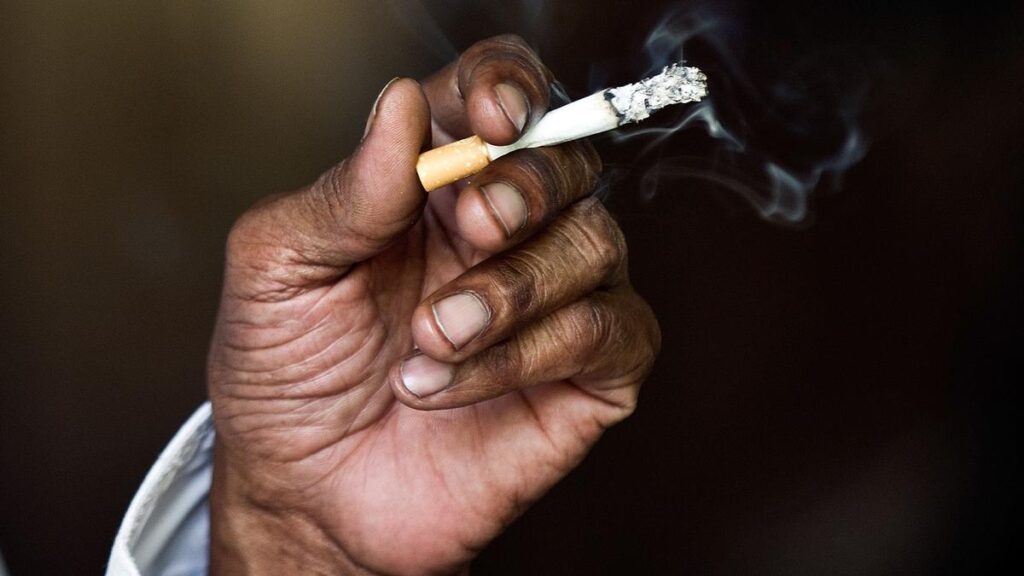Despite India having strict laws prohibiting both direct and indirect advertising of tobacco products, the tobacco industry continues to find ways to keep its brands visible: a 2021 report by the World Health Organization (WHO) found that one-third of countries worldwide, including India, still struggle with comprehensive bans on tobacco advertising, promotion, and sponsorship.
The law in India is clear: under Section 5 of the Cigarettes and Other Tobacco Products (Prohibition of Advertisement and Regulation of Trade and Commerce, Production, Supply and Distribution) Act, 2003 (COTPA), the advertisement and promotion of cigarettes and other tobacco products, including displaying, causing to display, or permitting/authorising the display of such advertisements is prohibited.
Since cigarettes and gutka can no longer be openly advertised, tobacco companies in India have found a workaround: surrogate advertising. From sponsoring school supplies to launching non-tobacco products under the same brand name, they subtly build a connection with potential consumers, especially the youth.

How surrogate advertising works
Surrogate advertising allows tobacco brands to stay relevant by associating themselves with legally acceptable products. Instead of promoting cigarettes or chewing tobacco, these companies launch items such as bottled water, notebooks, or even music CDs with the same brand name. The real intent is not to sell these products but to ensure that their tobacco brand remains familiar to customers.
Tobacco control activist Cyril Alexander, who works with the NGO Mary Anne Charity Trust (MACT), says this is a deliberate long-term strategy. He raised concerns about marketing strategies employed by companies like ITC’s Classmate brand. “The tobacco industry survives by continuously creating new users because their existing customers often suffer severe health consequences. By branding school supplies and sponsoring events, they start building loyalty before a child is even old enough to buy tobacco,” he says.
India’s COTPA act explicitly bans both direct and indirect advertisements. However, companies take advantage of weak enforcement and legal ambiguities. According to the experts one of the most common tactics is brand stretching, where a tobacco company launches a legally permissible product under the same name as its cigarette or gutka brand.
For instance, one of India’s leading cigarette brands also sells bottled water. While water and tobacco are unrelated, the logo and branding ensure continued public recognition. Harish Bijoor, a marketing expert, criticises this practice, “A tobacco brand selling water or stationery is not about diversification, it’s about keeping their name alive in the market,” he says.
Another tactic involves sponsoring school supplies and cultural events. Several schools in Tamil Nadu have received free notebooks with tobacco brand logos, given under the guise of corporate social responsibility (CSR). “Children develop familiarity with the brand long before they are legally allowed to purchase tobacco. By the time they are of age, the brand already feels familiar and trusted,” Mr. Alexander says.

A public health emergency
WHO records over 8 million deaths globally each year due to tobacco, including 1.3 million non-smokers exposed to second-hand smoke. According to the Global Adult Tobacco Survey (GATS) 2016–17, in India, the overall prevalence of smoking tobacco use is 10.38% and smokeless tobacco use is 21.38%. Both forms come with a significant health burden: while smoking is directly linked to, heart disease, stroke, and chronic obstructive pulmonary disease (COPD), smokeless tobacco contributes to over 50% of oral cancer cases in the country, as per a recent research study.
Surendran Veeraiah, head of Psycho-Oncology at the Cancer Institute, Chennai notes this as a ‘public health emergency’, and says that deceptive marketing strategies of tobacco companies exploit regulatory loopholes, and contribute to India’s growing cancer burden.
According to the WHO, India’s tobacco issue is exceptionally complex due to varied consumption patterns, such as chewing, smoking, applying, sucking, and gargling, and substantial tobacco-related health issues. Furthermore, research by the International Agency for Research on Cancer( IARC), published in The Lancet Oncology in 2024, reveals that smokeless tobacco and areca nut use are frequently promoted through surrogate marketing tactics.
These advertising practices sustain the demand for these harmful products, subtly encouraging consumption under the guise of pan masala, flavoured cardamom, or even bottled water.

Addressing the problem with a zero tolerance approach
Dr. Veeraiah, says that while some States have taken steps to curb surrogate advertising, Tamil Nadu is yet to implement committees that can monitor violations. He also adds that stricter enforcement is necessary as these ads create psychological impacts over time “Branding plays a crucial role in influencing consumer behaviour. When a tobacco company sponsors a school event or distributes notebooks, it normalises their brand in young minds, making it easier for them to transition to tobacco use later,” he says. He urges government interventions to allow tobacco be sold only in dedicated tobacco shops, similar to how liquor is regulated in India. Currently, tobacco products are widely available in small retail stores, making it easy for minors to access them.
“Liquor is sold in designated outlets with restrictions, a similar model for tobacco would reduce impulse buying and limit youth exposure,” he says.
Mr. Bijoor suggests a complete ban on all tobacco-related branding, including surrogate advertising, “If we can regulate narcotic substances, why do we allow tobacco companies to operate so freely? There should be a zero-tolerance policy,” he says.
Dr. Veerieah emphasises that until stronger measures are in place, tobacco companies will continue exploiting legal gaps to advertise under the radar.
Experts say unless strict zero-tolerance policies are enforced against surrogate advertising, tobacco-related illnesses will continue to rise, placing immense pressure on India’s healthcare system and increasing preventable deaths.
Published – March 21, 2025 05:06 pm IST

